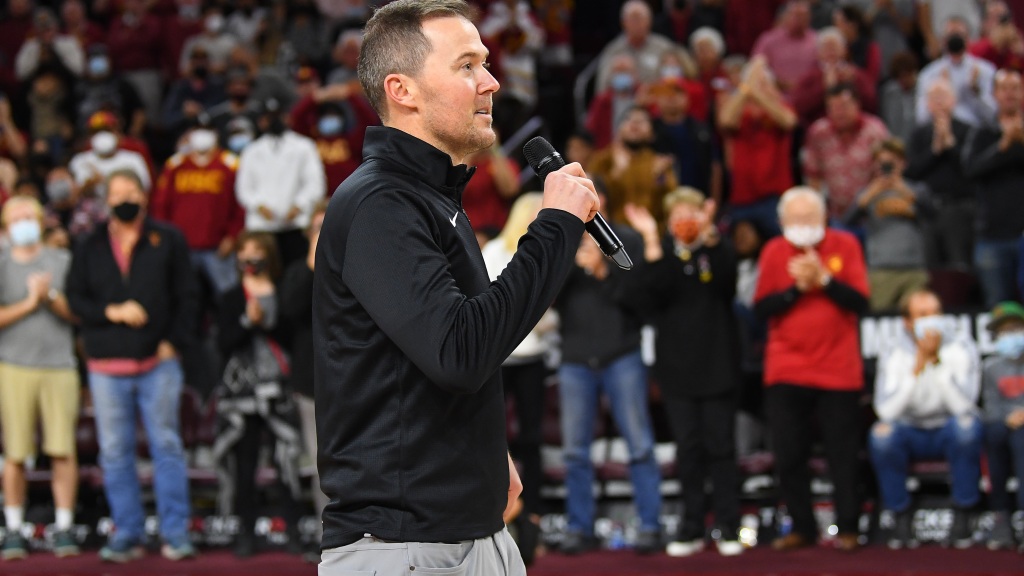College football debates can get pretty heated, in case you haven’t noticed. One of the less welcome tendencies in this business — I’ve seen it over the past 21 years in my career as a college football writer dating back to my days with College Football News in 2001 — is for a discussion to instantly assign extreme significance or meaning to coaches.
When praising or excoriating coaches, fans put these gridiron gurus on pedestals. A coach is either the Great Satan or a messiah sent from heaven. There is little room in between for the nuanced observation which might find fault with a coach in a specific instance but will give him room to grow and evolve. Saying even one thing good about a coach might paint a commentator as a homer. Saying even one bad thing about a coach might make a pundit seem like a hater and a ruthless critic.
As Lincoln Riley arrives at USC, it’s impossible to avoid noticing how non-USC fans think he wears the black hat and is a villain in the sport. This naturally will create a more unified USC fan base which simultaneously loves how hated USC has become once again, a sign of the program’s restored relevance, but also notes how other coaches aren’t held to the same high-scrutiny standard.
In many ways, commenting on college football coaches and the whole of sports is like a baseball season: Even the best teams lose 60 times per season, and the worst teams win 60 times. Covering coaches 365 days per year means that a lot of opinions will be given. The idea that one should be 100-percent favorable or harsh toward a coach is simply not how the world — or the art of criticism — works.
What’s my main point of emphasis on Lincoln Riley and his fellow coaches, then? I don’t think they’re bad people, and I also don’t think they’re gods among men. I just want them to appreciate that they get compensated handsomely to pursue a personal and professional dream.
Appreciating their well-paid jobs means that they should take…
Click Here to Read the Full Original Article at Football | Trojans Wire…

